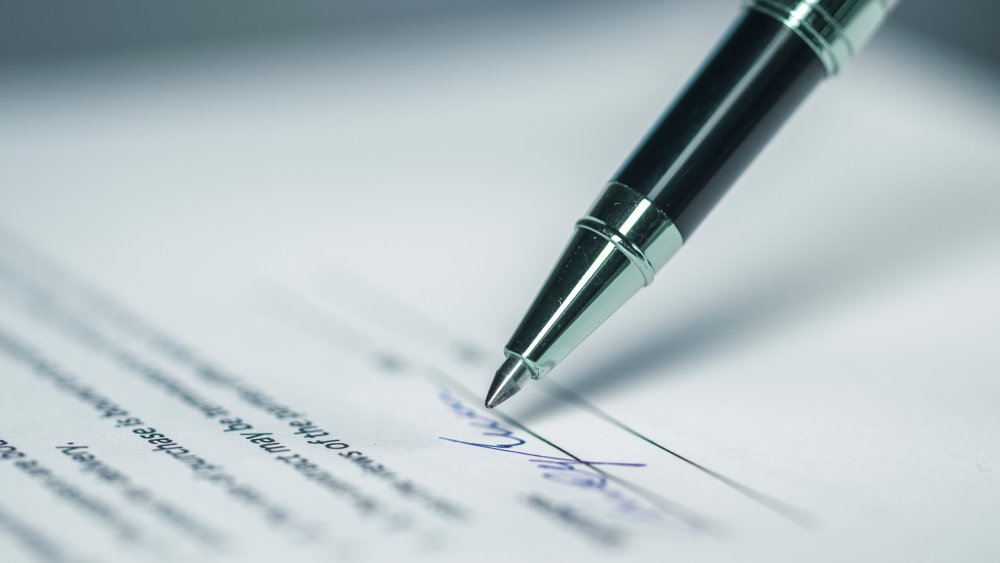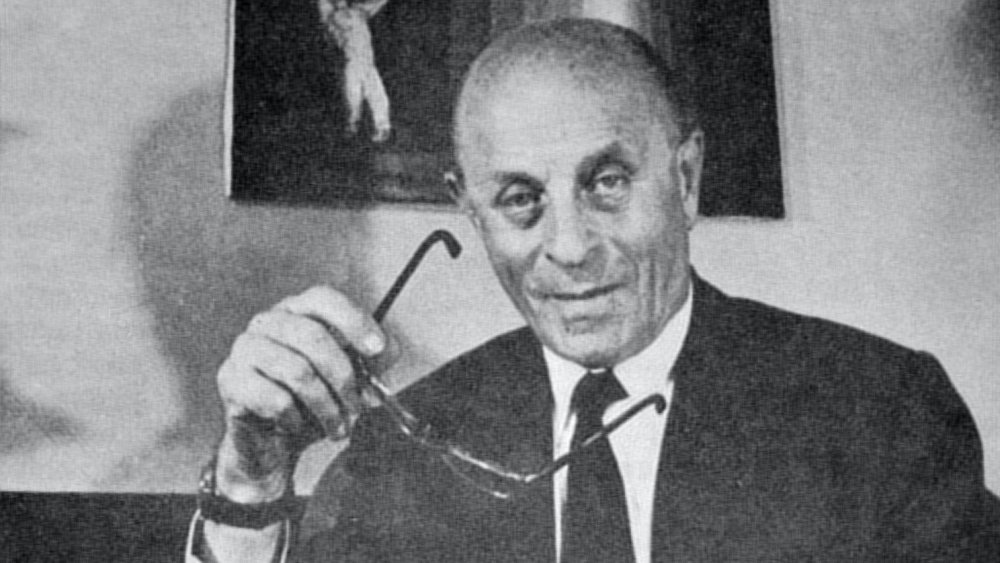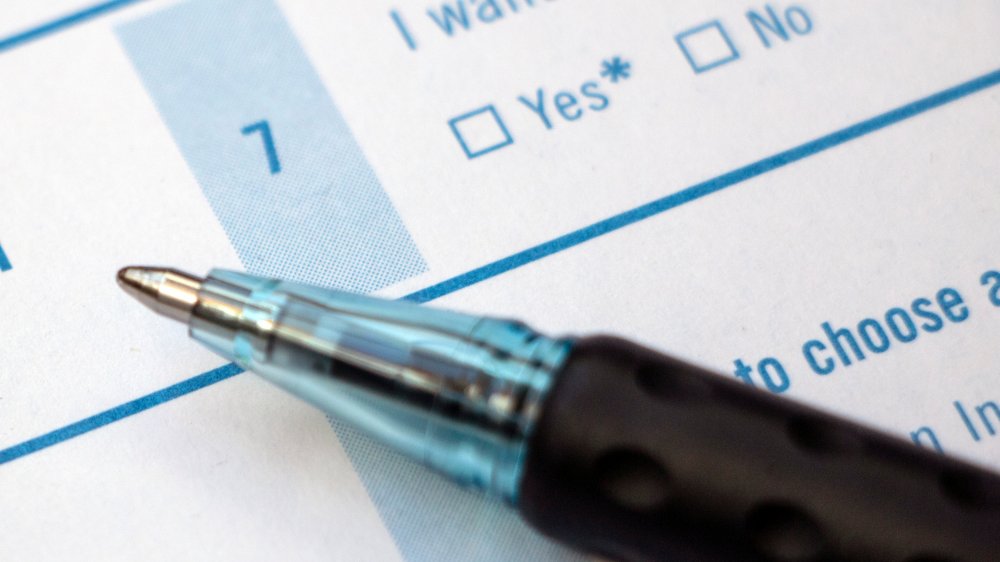The Truth About The Man Who Invented The Ballpoint Pen
The ballpoint pen is ubiquitous. We rarely think about them until we desperately need one — to sign for something at a restaurant, or jot down a note but can't do it on your phone. If you're a writer, it's something you expect to have on you at all times. The ballpoint pen, your trusted companion throughout school and the days when checks were still being used, has only been around since the 1930s. And we have one man to thank: Lászó Biró.
Biró, whose first name is sometimes spelled Ladislao, saw the need for a portable pen with a quick-drying ink, explained the Smithsonian Magazine. While working as a journalist in Hungary, he realized newspaper ink dried faster than fountain pen ink, but printing ink was too thick. Fountain pens were unwieldy, requiring constant refilling, new nibs, and prone to leakage.
As Vox reports, Biró found his inspiration when he saw a child playing with a marble. The marble rolled smoothly through water and realized that's how he was going to make his invention work. Biró tapped his brother Györgi, who worked as a chemist, to develop a small metal ball that rolled in a socket in the pen to stop the ink from leaking or drying out. They exhibited the pen in 1931 and patented it in 1938. But just a few months after Biró signed a business deal to produce and market his ballpoint pens, he had to flee Hungary.
His biggest customer was the Royal Air Force
Biró, who was Jewish, had to escape his native Hungary, which allied itself with the Nazis. Vox said the country passed laws that limited Jews from working, and banned the exportation of intellectual property. The brothers bounced around Budapest, Paris, and London before eventually settling in Argentina. Finally, they could begin mass producing and marketing the ballpoint pen.
In 1943, Biró filed a new patent for the ballpoint pen in Argentina and started his company, said History of Pencils. It is important to note that Biró's pen was not the first one to be invented. Vox pointed out an American lawyer, John Loud, filed the first patented version of the ballpoint pen in 1888, but while it could write on materials as varied as leather and cloth, weirdly, it didn't work on paper.
Biró started selling his invention in Argentina under the name Birome. To this day, Argentinians called the ballpoint pen a Birome. The pen proved popular, and soon, he found his biggest customer, England's Royal Air Force (RAF). RAF pilots needed pens for flight logs, but fountain pens tend to leak at altitude. The RAF discovered the ballpoint pen and, despite its initial expense, bought 30,000 of them. Despite his invention's success, though, Biró fell prey to a familiar story among great inventors. He sold his shares in the company and did not profit as much as he could have.
He changed handwriting forever
He sold the patent to Marcel Bich in 1945, who sold the item under his brand: BIC. Biró died in Argentina in 1985, where Inventor's Day is celebrated on his birthday, September 29.
Biró had the last laugh. His invention not only saved World War II pilots from ink stains, he changed handwriting forever, Vox claimed. The introduction of the ballpoint pen also meant reducing the use of fountain pens and writing in cursive. It seems funny for those who had to learn cursive using ballpoint pens and pencils, but the ballpoint pen actually made it easier to separate letters. By separating letters, people no longer needed to rely on cursive, which is far easier to do with a fountain pen. People also believe the ballpoint's design made it easier for hands to cramp, so that's why they don't write by hand anymore. (Have these people seen a pencil?)
Whether his invention made people terrible letter writers or not, there's no denying the impact Biró's "miraculous" product had. It made it easier and cheaper for people to put pen to paper. In many countries, like the United Kingdom and Australia, they still refer to a ballpoint pen as a biro. The next time you dig around in your bag looking for a pen so you can write down your tip and sign off on that dining check, thank Biró that you don't need to pull out a fancy, leaky fountain pen to do so.


